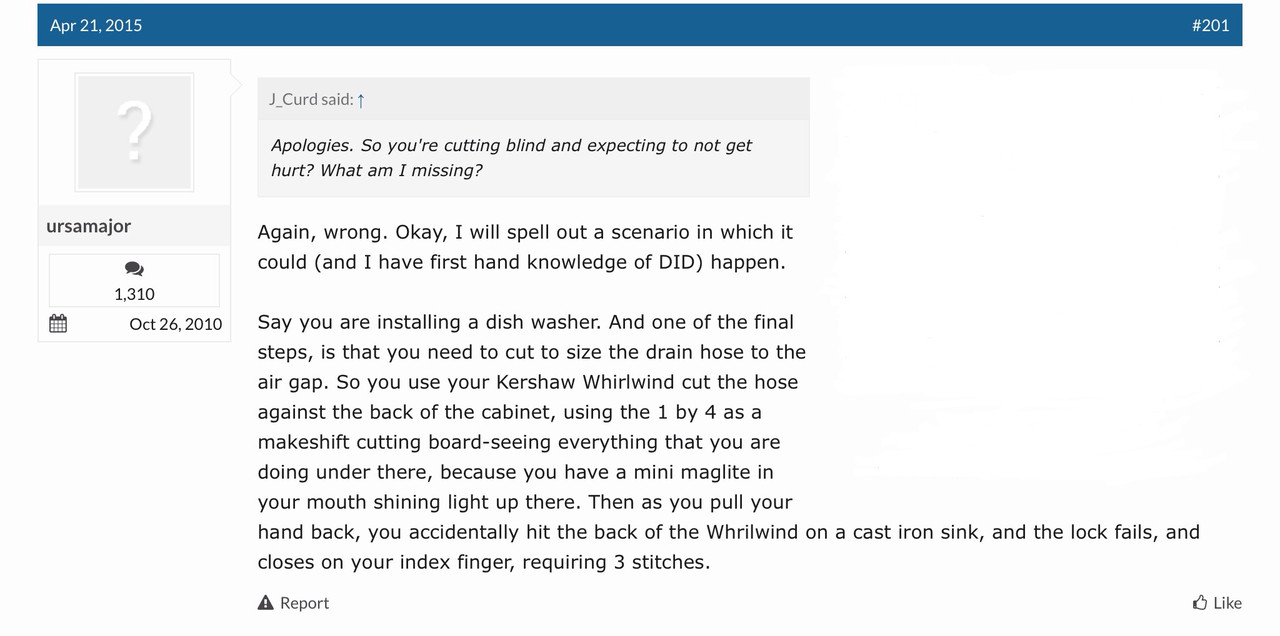I'll admit that I feel strongly about this topic. For me, it's a combination of factors.
1) That an expensive knife shouldn't have problems with lock geometry and design, or any other part of its execution, even if you don't intend to use it in a way where that matters. Full-stop. To me, this is akin to wanting your sports car to be capable of the performance you've paid for, or to wanting a knife with good steel to have a good heat treat. Some things should just be correctly done. What you're paying for should be what you get, period. It's fascinating to me that people care more about Benchmade shipping out knives with blades that aren't centered than about ZT shipping knives that don't have correct lock geometry (I've seen this first hand on my own ZTs, so drop the nonsense about how it's a few isolated instances).
2) Because locks don't matter until the one instance where they do, and then they're worth the knife's weight in gold. Locks allow for knives to make plunge cuts safer, they allow for you to pull a wedged knife out of cardboard/rubber/foam/plastic safer, they allow you to get away with being less attentive regarding how you hold the knife while moving around and working (like the example above of the spine hitting solid objects while in a warehouse/HVAC work/auto work/construction/home improvement situation, and in general are going to make it easier to operate a knife without being cut. I can still be smart about how I use a folding knife and not rely on the lock to be safe, but still have the lock as additional insurance, just like how I can carefully drive a car with a working seatbelt having never been in an accident and still feel strongly about having a working seatbelt in my car.
3) Because it looks like some knife makers don't understand what they're doing. As Michael Walker would probably tell you, frame and liner locks are more difficult to get right than most people acknowledge. It seems like a number of OEMs nowadays use unsafe lock geometry, poor lock designs, non-existent lockbar tension, and improper lock surface finishes/treatments on their blades and seem to not to realize it. Why should I assume that those OEMs only get the locks wrong on their knives if those same people are in charge of heat treat/fastener choices/blade grinding/handle work/general design?
This is an especially sensitive topic for me because I've had a disturbing number of expensive knives that would reveal lock issues with static hand pressure on the spine of the blade. I don't do spine strikes to test a lock, so if the lock shifts in my bare hands or the blade closes rather than seizing open like it's supposed to, that's a problem. I have not been cut with any of my knives due to failing locks; however, I also check every single knife the instant I get it and get rid of any that have weak locks, so read into that how you will.


